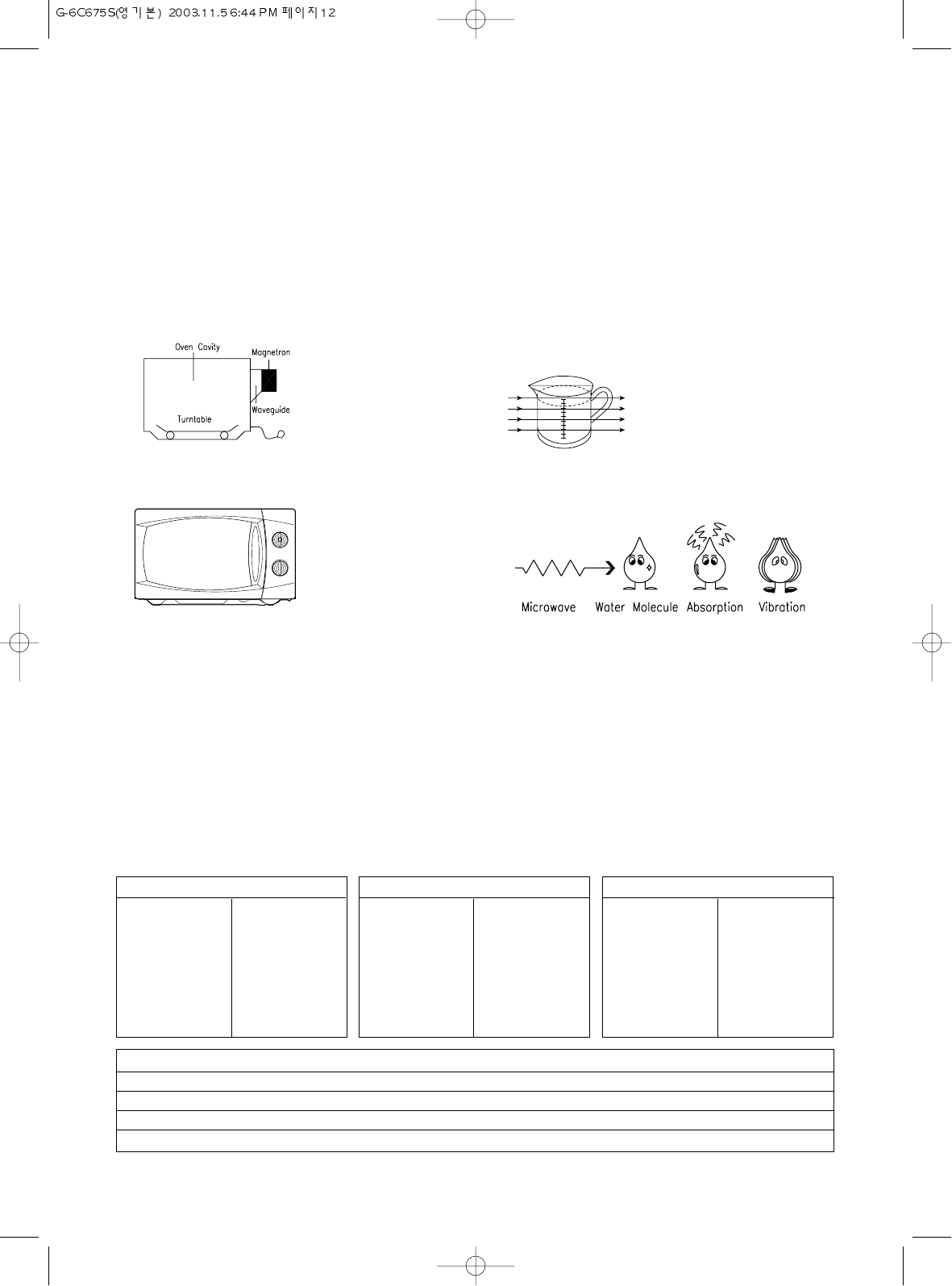
12
MICROWAVING PRINCIPLES
Microwave energy has been used in this country to cook and reheat food since early experiments with RADAR in
World War ll. Microwaves are present in the atmosphere all the time, both naturally and manmade sources. Manmade
sources include radar, radio, television, telecommunication links and car phones.
CONVERSION CHARTS
In a microwave oven,
electricity is converted
into microwave by the
MAGNETRON.
REFLECTION
The microwaves
bounce off the metal
walls and the metal
door screen.
TRANSMISSION
Then they pass through the
cooking containers to be
absorbed by the water
molecules in the food, all
foods contain water to a
more or lesser extent.
ABSORPTION
The microwaves cause the water molecules to vibrate
which causes FRICTION, i.e. HEAT. This heat then
cooks the food. Microwaves are also attracted to fat and
sugar particles, and foods high in these will cook more
quickly. Microwaves can only penetrate to a depth of
1
1
/2 - 2 inches(4-5cm) and as heat spreads through the
food by conduction, just as in a traditional oven, the food
cooks from the outside inwards.
WEIGHT MEASURES
15 g
1
/2 oz.
25 g 1 oz.
50 g 2 oz.
100 g 4 oz.
175 g 6 oz.
225 g 8 oz.
450 g 1 lb.
HOW MICROWAVES COOK FOOD
▲
▲
▲
VOLUME MEASURES
30 ml 1 fl.oz.
100 ml 3 fl.oz.
150 ml 5 fl.oz. (
1
/4 pt)
300 ml 10 fl.oz. (
1
/2 pt)
600 ml 20 fl.oz. (1pt)
SPOON MEASURES
1.25 ml
1
/4 tsp
2.5 ml
1
/2 tsp
5 ml 1 tsp
15 ml 1 tbsp
FLUID MEASUREMENTS
1 Cup = 8 fl.oz. = 240 ml
1 Pint = 16 fl.oz. (UK 20 fl.oz.) = 480 ml (UK 560 ml)
1 Quart = 32 fl.oz. (UK 40 fl.oz.) = 960 ml (UK 1120 ml)
1 Gallon = 128 fl.oz. (UK 160 fl.oz.) = 3840 ml (UK 4500 ml)


















